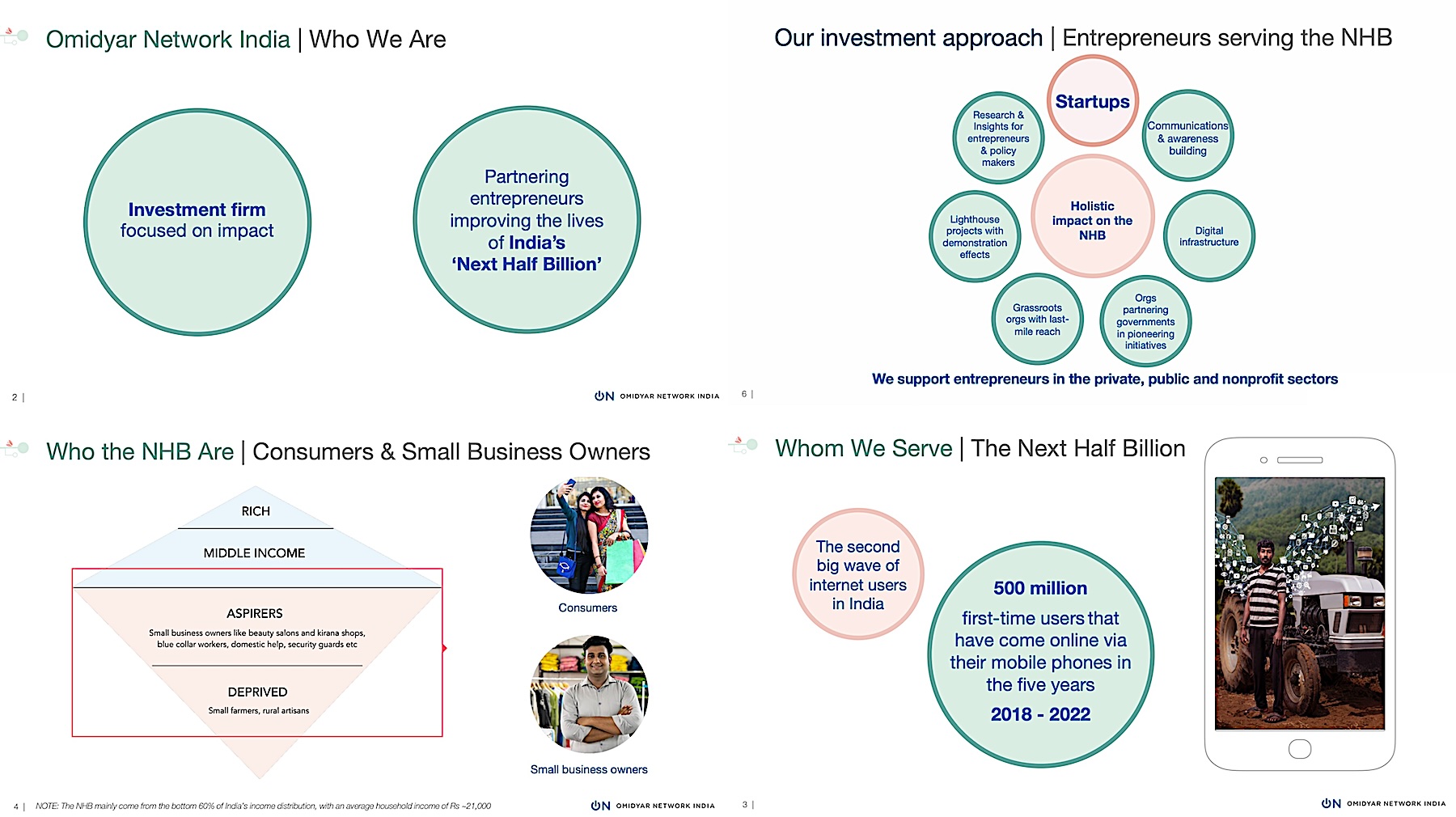Omidyar Network, backed by eBay founder Pierre Omidyar, is shutting down its India operations, two sources familiar with the matter told TechCrunch, in a stunning development for the impact venture firm that has backed over 120 startups in the South Asian market over the last 13 years.
TechCrunch couldn’t determine why Omidyar had decided to abruptly pull from the Indian market, a development that was shared with the local team Monday, a source familiar with the matter said, requesting anonymity as the matter is private.
The move comes a year after Omidyar Network and nine other NGOs came under the radar of India’s Central Bureau of Investigation, which serves similar roles as the FBI in the U.S., over alleged violation of the nation’s Foreign Contribution Regulation Act that oversees a firm’s ability to receive overseas donations. Thousands of civil society groups in India have had similar licenses canceled in the past nine years.
After the publication of this story, Omidyar Network said it took the decision after “several months of deliberation,” a claim that many insiders balked at. Omidyar Network India unveiled five new investments in India in just the last two months and its executives engaged in a public conference as recently as Monday. It’s also currently sponsoring at least one ongoing podcast series.
The firm didn’t respond to a request for comment Monday but confirmed the development after the publication of this story. It said its decision to pull out of the Indian marked was “heavily informed by the significant change in context and the growth in the economic landscape that the India-based team has experienced since first making investments there in 2010.”
It added: “Today, there is more Indian led philanthropic and venture capital than ever before, the country has a vibrant start-up sector, and several funds now have a middle and lower-middle income focus as part of their investment strategy. From its outset, the Omidyar Network India team identified these system shifts as critical to impact and worked diligently to help catalyze this change.”
The firm’s board and leadership team will assess over the next two months how to best manage the portfolio startups going forward, it said. The firm employed over three dozen people in India.
Omidyar Network “achieved our primary objective of catalysing impact,” in India, the firm said, adding that it will no longer be making any more investments in India.
A separate individual familiar with the situation said that the India team plans to attempt to reunite and raise money externally and start a new fund, but cautioned that it’s too early so the plans may change and deliberations may fail.

Slides from an Omidyar Network India’s presentation. Image Credits: Omidyar Network India (slide obtained by TechCrunch)
Omidyar Network backed startups in India that, at least on paper, were solving problems faced by half a billion people in the country. Its portfolio startups include 1mg, Bounce, Vedantu, Bijak, DealShare, Doubtnut, Entri, HealthKart, Indifi, M2P and Pratilipi.
As of July this year, Omidyar Network India had about $673 million of cumulative assets under management and its portfolio startups reached 735 million people, according to an investor presentation.
2023 has been a rough year for the Omidyar Network India team. Doubtnut, a startup which raised more than $50 million, sold for $10 million this month. And ZestMoney, once valued at nearly $450 million, also announced that it was shutting down. Both of them counted Omidyar Network India among their backers.
India has emerged as a key market for venture and private equity investors in the past decade as startups scale to serve the world’s most populous market. “India is the new China and the fastest growing major economy in the coming decade and beyond. We believe India offers the most attractive long-term investment appeal in our universe,” Baron Capital said in a quarterly report this year.
But it’s also true that many venture investors have struggled to make money in India.
Tiger Global’s Scott Shleifer said early this year on a call with Indian entrepreneurs that he believed that the South Asian market will deliver the highest equity returns globally in the future but admitted that the nation had historically delivered below average returns to the New York-headquartered giant.
“Returns on capital in India have sucked historically. If you look at the market-leading internet companies, whether it is Google, Facebook, Alibaba or Tencent, revenue for them got bigger than cost more than a decade ago. You had a great legacy of last 17-18 years of materially profitable internet companies. So returns on equity in the internet got really high and the returns for investors have been really high. But that did not happen in India,” he said.
Also breaking on TechCrunch: Tribe Capital eyes leading $75M-plus funding in India’s Shiprocket.
